Does Adding More Enzyme Increase Rate Reaction
By increasing the enzyme concentration the maximum reaction rate greatly increases. Enzyme catalysis is the increase in the rate of a chemical reaction by the active site of a protein.
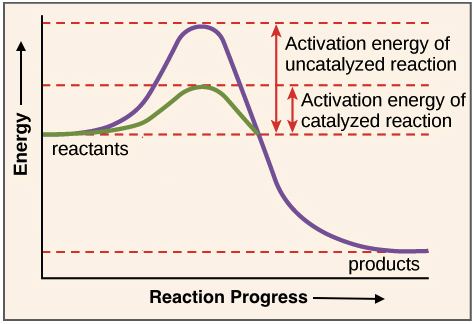
Enzymes Review Article Enzymes Khan Academy
If you doubled the amount of enzyme sure the Vmax is going to increase.
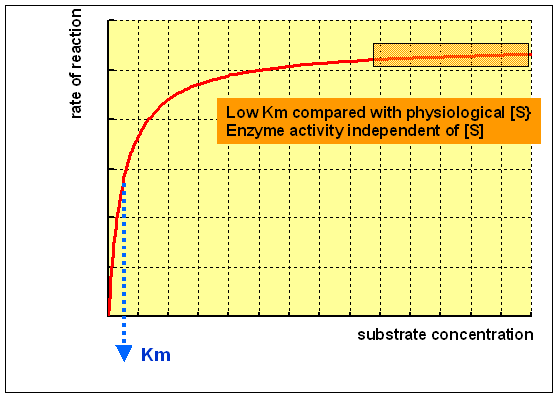
Does adding more enzyme increase rate reaction. An irreversible change in the tertiary structure of a protein molecule. Does adding more catalyst increase reaction rate. How does adding more lactose enzyme increase the rate of reaction 3 marks-The more enzymes present the more likely a successful collision will occur - Forming an enzyme-substrate complex - Thus increasing the rate of reaction.
Reduction in the speed causes the products to form reactants in a reversible reaction. The same effect can be obtained by physically stirring the ingredients. Directly on the concentration of an enzyme.
Active site catalyst inhibitor large subunit. So why is this important. This implies enzymes greatly increase the reaction rate.
By increasing the enzyme concentration the maximum reaction rate greatly increases. If you doubled the amount of. Km is the concentration of substrate at which the enzyme will be running at half speed.
Thus the molecules of the substrate and enzymes move more quickly and chances of their interaction into each other are increased. Some examples of enzymes and their specific substrates. The rate of reaction before denaturing the enzyme completely.
When enzyme concentration is increased the reaction rate is increased as a result of more colliding and interaction of enzyme and substrate molecules thereby more product is obtained. When a piece of liver is dropped into hydrogen peroxide the peroxide bubbles vigorously as a result of what reaction. A catalyst is a substance which will decrease the activation energy for a reaction.
The protein catalyst enzyme may be part of a multi-subunit complex andor may transiently or permanently associate with a Cofactor eg. Based on the graph which of the following could be used to increase the reaction rate beyond point C. The part of the enzyme where the substrate binds is called the.
By plotting dpdt as a function of S for two different values of K red and blue lines we can see how the Michaelis-Menten constant affects the reaction. Catalysts speed up chemical reactions. Enzymes increase reaction rates in a very similar way to regular catalysts except they are much more effective.
There are several factors that can increase the rate of a reaction. The rate of enzyme catalyzed reaction increases with increase in temperature until a peak velocity is obtained. It leads to loss of function in most proteins.
When K is small blue line with value K1 the reaction approaches V max much more quickly. Catalysis of biochemical reactions in the cell is vital due to the very low reaction rates of the uncatalysed reactions. However enzymes become saturated when the substrate concentration is high.
But as substrate concentration continues to increase the increase in rate of reaction being slow down until with. The enzyme reaction rate increases the speed of thereaction towards forming the products from reactants. Raising the temperature can speed a reaction because the molecules have more energy and therefore bump into each other more frequently.
Enzymes will increase the rate of a chemical reaction by reducing the activation energy needed to make the reaction get started. Increase the amount of substrate add more water increase the temperature decrease enzyme concentration. With a fixed concentration of an enzyme and with increasing substrate concentration a rapid increase in the rate of the reaction is observed at first.
If it is increased then the rate of the process will increase. However as the enzymes become saturated the reaction rate levels off. Give much higher reaction rates than regular catalysts.
Enzymes are protein molecules which serve as catalysts for chemical reactions. This is really because the reaction proceeds by a different pathway when the catalyst is present. An increase in the amount of enzyme will increase the rate of the reaction provided sufficient substrate is present.
The substance that is used up in an enzyme-controlled reaction fits into the active site of the enzyme. The rate of a chemical reaction increases as the substrate concentration increases. Enzymes will make reactions occur much more easily quickly and more efficiently than they ever would without the enzyme.
If the concentration of the substrate is low increasing its concentration will increase the rate of the reaction. Act in mild conditions 37oC pH 74. The rate of a chemical reaction increases as the substrate concentration increases.
Enzymes can greatly speed up the rate of a reaction. Only very minute quantities of the catalyst are required to produce a dramatic change in the rate of the reaction. However enzymes become saturated when the substrate concentration is high.
Effects of Enzyme Concentration. What we expect to see is that the rate should level off once it reaches the maximum when every peroxidase enzyme has a hydrogen peroxide molecule to interact with -- at that point adding more hydrogen peroxide cant increase the reaction rate because all of the available enzymes are busy. Enzymes can greatly speed up the rate of a reaction.
Heating increases the molecular motion. Once you add more hydrogen peroxide to the solution the reaction rate will increase as more substrate molecules can collide with the enzyme forming more product. Enzymes unlike many catalysts.
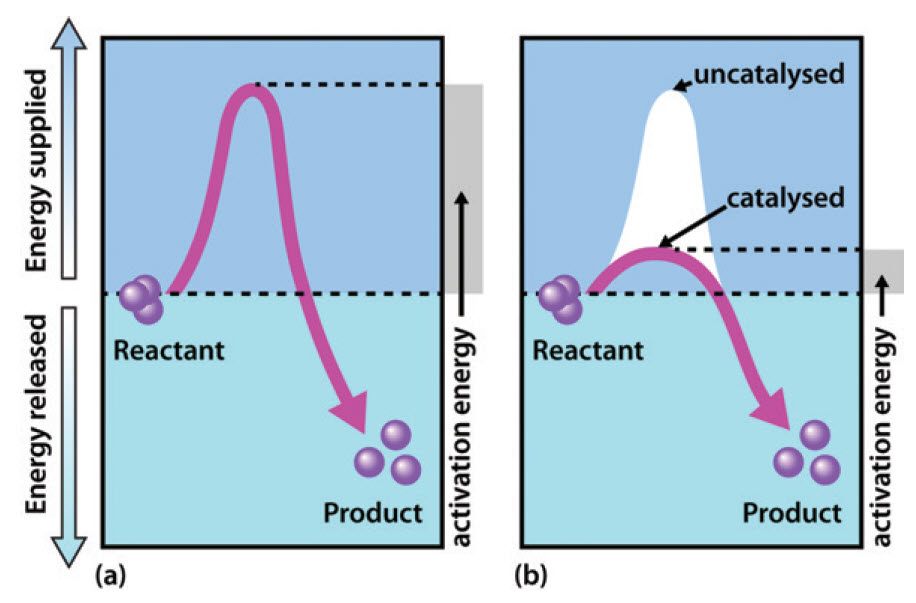
Chapter 6 Enzyme Principles And Biotechnological Applications Chemistry
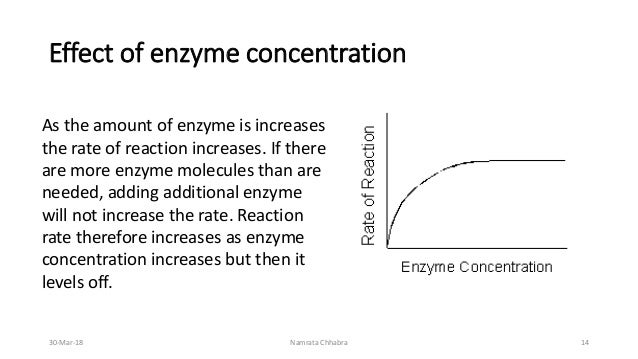
Factors Affecting Enzyme Activity

Enzyme Rate Of Reaction Factors Catalysts Video Lesson Transcript Study Com

Concentration Enzyme Reaction Rates Effects Role Expii

Rate Of Reaction Enzymes Role Importance Expii
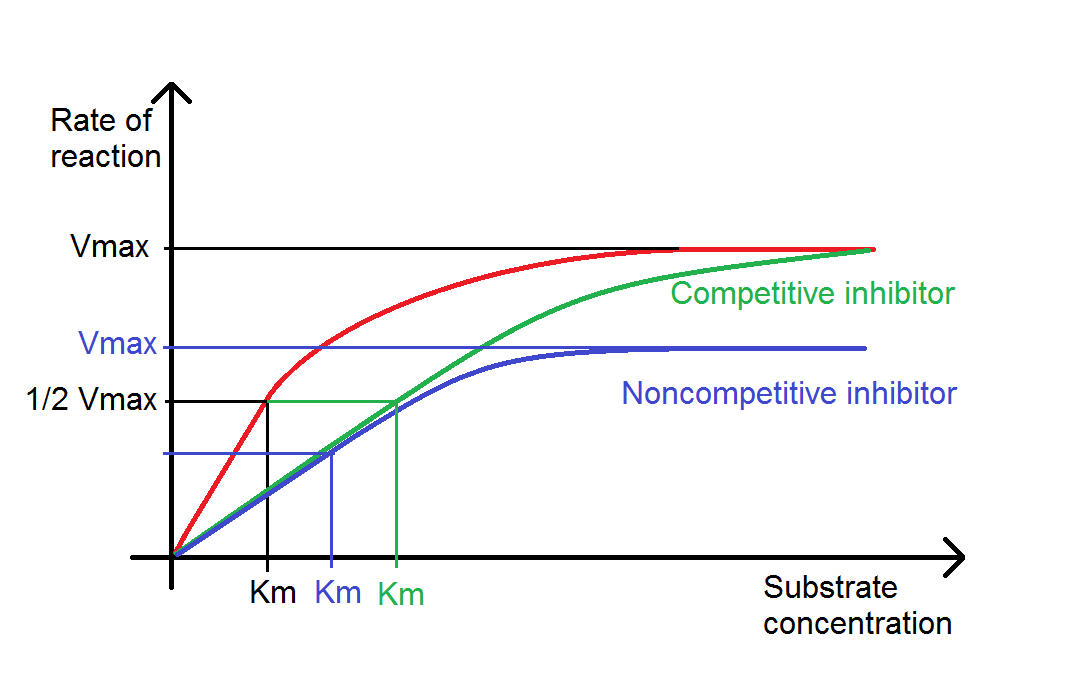
Biology Enzyme Reaction Rates University Of Birmingham
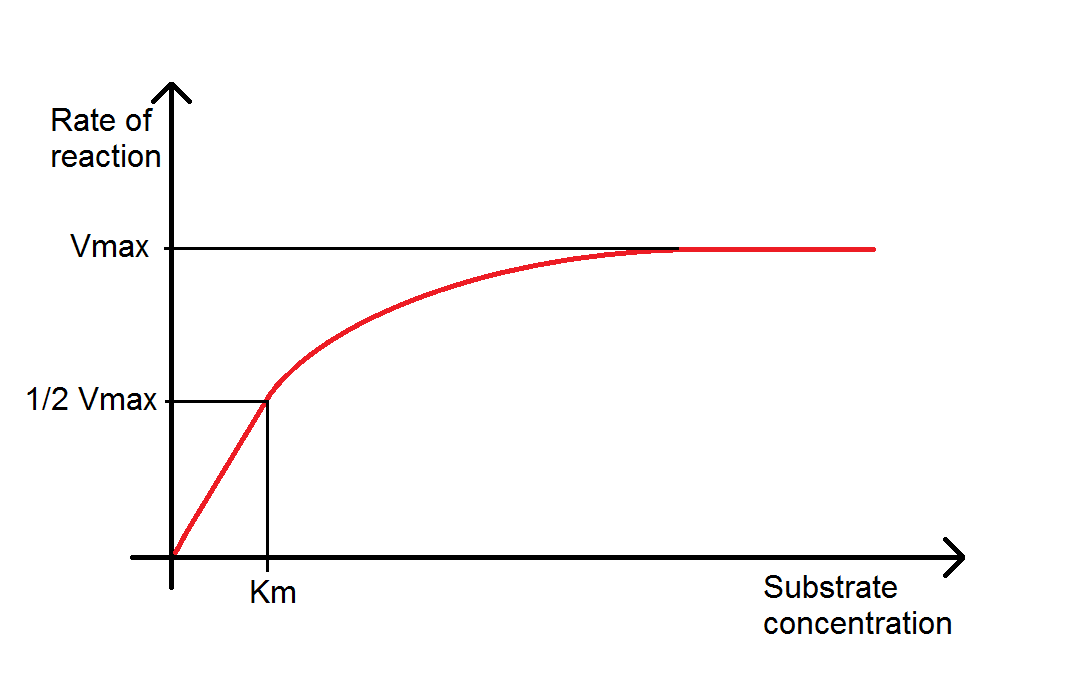
Biology Enzyme Reaction Rates University Of Birmingham

Concentration Enzyme Reaction Rates Effects Role Expii

Rate Of Reaction Enzymes Role Importance Expii

Rate Of Reaction Enzymes Role Importance Expii

Factors Affecting Enzyme Activity A Level Notes

Enzymatic Reaction An Overview Sciencedirect Topics
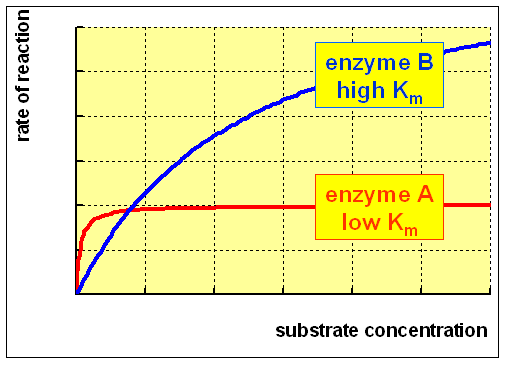
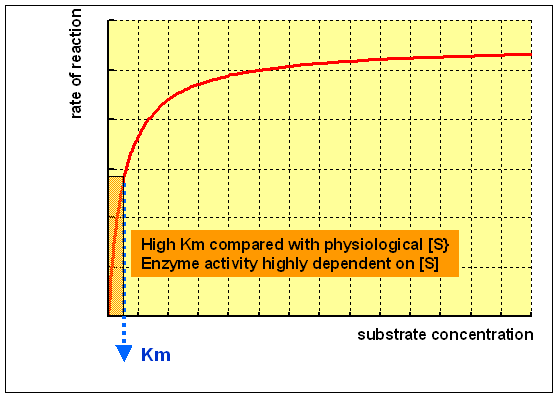


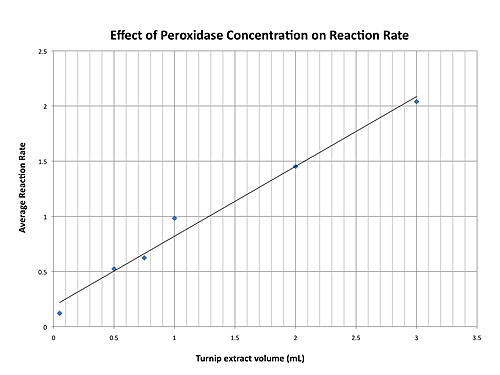
Post a Comment for "Does Adding More Enzyme Increase Rate Reaction"